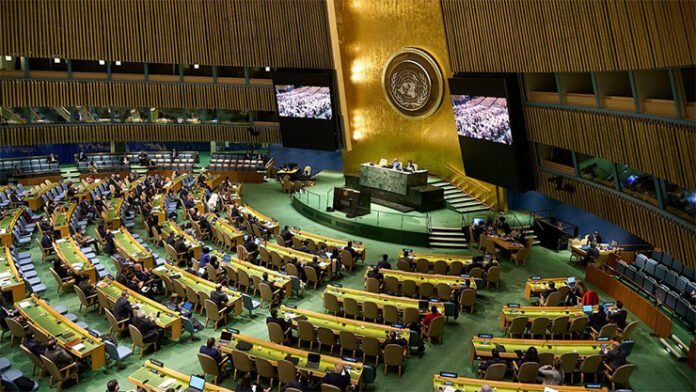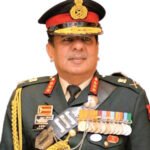the United Nations’ (UN) Summit of the Future scheduled for September 22-23, is the most important event of the year. It aims to establish a future course for the UN as the world negotiates VUCA (Volatility, Uncertainty, Complexity and Ambiguity) and the UN faces BANI (Brittle, Anxious, Non-Linear, Incomprehensible) challenges.
PM Modi will address this summit which would deliberate and draw consensus on UN’s effectiveness and relevance. Since its inception in 1945, UN’s membership has grown nearly fourfold but its legacy structure and mental paralysis have widened the gap between the Global North and the Global South.
UN as an organisation has lost its credibility and effectiveness as conflicts engulf the world, while the big five dictate unilateralism, exceptionalism, and geopolitics driven by competing national interests rather than peace and stability.
The theme of the September 2023 summit “Rebuilding Trust and Reigniting Global Solidarity” remained sadly a cliché. The big five chary of status and power being diluted adopt an ostrich approach to a more equitable and respected UN.
The Summit for the Future will address five key areas: Peace and Security, the SDGs, Science and Technology, Youth and Future Generations, and Transforming Global Governance.
It will propose reforms such as restructuring and functioning of the UN Security Council, dealing with escalating conflicts in Ukraine and the Middle East, and health emergency responses.
UN as an organisation has lost its credibility and effectiveness as conflicts engulf the world, while the big five dictate unilateralism, exceptionalism, and geopolitics driven by competing national interests
The evolution of the United Nations (UN) as a follow-up of World War II aimed to prevent future conflicts and promote peace, and stability based on global consensus. However, while the global dynamics evolved and disruptions set in the geopolitics, the UN remains bogged in its legacy framework.
The failure of the UNSC to take meaningful action in response to the conflicts in Gaza and Ukraine has reignited concerns about the ability of the UN to help resolve international crises.
There is a growing pressure for the UN to adapt to the contemporary challenges, including conflict resolution, climate change, public health, and technological fallouts.
UN as a multilateral organisation must address its lack of trust and credibility, particularly its principal organ, the United Nations Security Council, which has been rendered completely ineffective in ensuring global peace and stability.
The void of emerging powers like India, Brazil, and African nations on the permanent seats has led to calls for a more inclusive and balanced representative Security Council.
The concentration of absolute power and veto within the Security Council’s five permanent members has led to bias, unilateralism, exceptionalism, and double standards.
This has eroded its stature and trust. We have seen these big power conflicts initiation, proxy play, belligerence and weaponising all elements of national power, thereby making the world a more dangerous stage.
There is a growing pressure for the UN to adapt to the contemporary challenges, including conflict resolution, climate change, public health, and technological fallouts
Reforming the Security Council to include more representative voices and revisiting the use of the veto as a tool for furtherance of individual national interests, could restore the UN’s legitimacy and credibility.
Emerging powers like India, as leaders of the Global South are rightfully demanding a greater role and reforms.
The power play by the P5 members has single-handedly defeated any formal reforms. Since its inception in 1945, the UN charter has only been amended thrice.
The most significant being enhancing the non-permanent members from 6 to 10 in 1963. Thus, a way must be found for non-amendment reforms drawing lessons from history.
One such initiative could be the Uniting for Peace Resolution and Veto Initiative: The General Assembly could pass a resolution that would provide for specific and defined consequences to follow if a state is found to have violated the UN Charter.
The concentration of absolute power and veto within the Security Council’s five permanent members has led to bias, unilateralism, exceptionalism, and double standards
The finding could be made by the General Assembly itself or delegated to a competent, quasi-judicial expert body. Once a member state is found to have committed a grave violation of the charter, it would automatically lose many of the benefits of membership in the United Nations.
Till the amendments to the charter are made, an out-of-the-box approach will need to be found to minimise the power play of the Big P5. An incremental approach to balance power including veto more equitably between non-permanent members and P5 members as well as between the council and UNGA could provide greater credibility and relevance to the UN.
The UN also suffers from bureaucratic lethargy, which often hinders its ability to respond swiftly and effectively to global crises. The organisation’s lackadaisical sluggish bureaucracy and its lack of coordination have impeded decision-making and implementation, reducing its effectiveness on the ground.
Reforms aimed at streamlining the UN’s operations, improving coordination among its various agencies, and enhancing accountability are the needs of the day. A more responsive UN is needed to tackle contemporary challenges, from conflict resolution and peacekeeping to climate change and health emergencies.
India, as the largest democracy, most populous peaceful loving nation, and fastest growing economy with proven military capabilities, is a prime candidate for permanent membership of the UNSC
India, as the largest democracy, most populous peaceful loving nation, and fastest growing economy with proven military capabilities, is a prime candidate for permanent membership of the UNSC.
Its hard power, soft power and smart power are increasingly being acknowledged and respected across the world. It needs to move from a rule follower to a rule shaper for the global interest.
India’s contributions to UN peacekeeping missions, COVID-19 vaccine diplomacy, humanitarian aid, its leadership role in global climate initiatives, and its emergence as a voice for the Global South, further underscore its credentials.
Despite this, India remains excluded from the Security Council’s permanent membership, leading to questions about the Council’s legitimacy and power play by the ‘Big Five’.
India has been a strong advocate for sustainable development and climate action on the global stage. Its adoption of the Paris Agreement and leadership in the International Solar Alliance, an initiative aimed at promoting solar energy and reducing greenhouse gas emissions have been lauded by all.
Diplomatic efforts must focus on building consensus around a reform agenda that balances the interests of different regions, addresses the concerns of both Global North and Global South and is empowered by policies for balanced global governance
India’s track record in balancing economic growth with environmental sustainability, its commitment to renewable energy, and its efforts to address poverty and inequality make it a valuable partner in global development efforts. India could thus take on a leadership role in advancing the Sustainable Development Goals (SDGs).
The need for UN reforms is globally acknowledged, yet walking the talk on the specifics of reform remains elusive. Unless a concerted effort by member states, including emerging powers like India, is taken to move forward, the future of the UN will remain bleak.
Diplomatic efforts must focus on building consensus around a reform agenda that balances the interests of different regions, addresses the concerns of both Global North and Global South and is empowered by policies for balanced global governance.
The path to the reforms will pose many challenges, but without it, the future and relevance of the UN remains in danger. The 79th session of the UNGA must thus be a path-breaking moment in its history to reshape its inclusive future and remain relevant to the disruptions in global peace and stability.
From India’s perspective, the present structure is inherently unjust and does not reflect truly the collective will of the comity of nations. It needs to be more inclusive, transparent, and consultative. Thus, a failure to reform may erode the faith in the international order and bury the UN.
The author, a PVSM, AVSM, VSM has had an illustrious career spanning nearly four decades. A distinguished Armoured Corps officer, he has served in various prestigious staff and command appointments including Commander Independent Armoured Brigade, ADG PP, GOC Armoured Division and GOC Strike 1. The officer retired as DG Mechanised Forces in December 2017 during which he was the architect to initiate process for reintroduction of Light Tank and Chairman on the study on C5ISR for Indian Army. Subsequently he was Consultant MoD/OFB from 2018 to 2020. He is also a reputed defence analyst, a motivational speaker and prolific writer on matters of military, defence technology and national security. The views expressed are personal and do not necessarily carry the views of Raksha Anirveda






